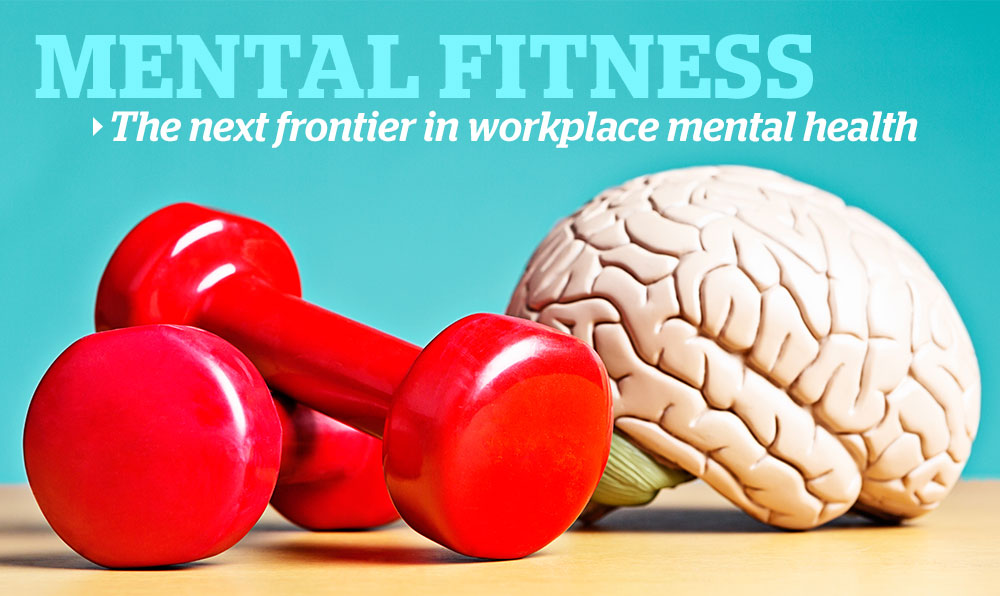

Columns/Blogs
Features
Engagement
Mental Health
Finding your emotional remote control
By Bill Howatt

EDITOR’S NOTE: ‘Mental Fitness: The next frontier in workplace mental health’ is a weekly series, in partnership with Dr. Bill Howatt of Howatt HR Consulting in Ottawa. This series takes a deeper look at mental fitness — an approach to prevent mental harm and promote mental health.
“There may be no bigger challenge we humans have than successfully navigating the four inches between our ears.” – Dr. Bill Howatt
Perhaps one of the most amazing things many know little about is our subconscious mind. It is like having no idea what is at the bottom of a deep ocean.
I was listening to Chris Voss, a world-famous hostage negotiator. He made two comments that had me thinking: in a positive mental state we are 31 per cent smarter and in a negative state, 31 per cent dumber — a 62 per cent variance.
The microskill of emotional management is designed to help you gain insight into changing your emotional channel from negative to positive, so you can view the world through a positive lens.
With some practice and intention, you can train your brain to challenge negative emotions so they do not influence you to make decisions you may later regret.
In my professional and personal experience, I have observed many people make life decisions based on emotional responses.
Emotions drive behaviour, but what if the emotions are being driven by faulty logic?
To control the territory of emotions, you need a map
Your brain is an amazing learning machine. It learns from repetition and emotions by creating neuropathway wiring.
For example, if you feel you’re not good enough to ask a person out for a coffee or fear being rejected, your brain programs this is what will happen when you think about asking someone out.
Deep in your subconscious mind, emotions of pain will be attached to the thought of asking someone out and suddenly you feel an urge not to avoid pain.
Now you have a double bind. If you do not ask them out, you are in pain. If you ask them out, you feel pain.
One reason we have so much mental illness is many do not have a map to shape our emotions.
Be clear how a negative channel is created:
- You develop beliefs about who you are: “I am …” (fill in the blanks: strong or weak for each belief you have about you)
- You form core beliefs that influence your conscious and unconscious mind about what to think about in a particular situation. In the above example, a person could be confident in the work world, but not in their personal world.
- You will make decisions based on your current emotions. Emotions are chemicals that are experienced as feelings attached to a thought driven by a belief. Emotions are powerful, as they drive behaviour. We are at more risk to make poor decisions when experiencing negative emotions.
- You make decisions about your day-to-day potential based on your belief system built on life experiences. What we choose to do can feel like it makes sense, but if we are not aware of flawed negative beliefs, we become victims of our belief systems that can negatively impact our happiness and quality of life.
Taking charge of your emotional remote control
Own your belief system: Write down all the things you believe about yourself. Only you know the truth. If you are not sure, start journaling and listen to the things you think.
Sticking to the above example, you don’t ask out a person you are attracted to. Ask yourself why.
If you say, “They would not want to go out with me,” challenge that thought and ask how you learned that. It’s likely because you compare yourself to others and decide whether another person would like you based on looks or status.
Emotional change begins with paying attention to your beliefs and challenging them.
Practice self-compassion and learn to be kind to yourself: This discipline requires accountability and time to learn how to change your belief system.
Give yourself some time to retrain your brain. The more you fire positive thoughts about yourself, the more you wire your brain to be positive.
This positions you to be in control of your emotional channel so that when an old program jumps up you can flip to a new one, or eventually allow the old program to be mothballed.
Stop judging: Make a conscious effort to just stop negative judging of others.
Judgment is about being right, about win or lose, and it creates internal and sometimes external conflict when we verbalize it. Put your attention to collaboration and focus on the desired outcome and how to get it.
Why? Because your subconscious is listening closely to your every word.
Judgment often comes from a deep worry about what we do not like, but find in others. The problem is this perception drives our projection and reinforces negative emotion and wiring.
We are only hurting ourselves and making our deep subconscious experience more negative emotions than we want, because they will show up in ways that create discomfort.
 Dr. Bill Howatt is the Ottawa-based president of Howatt HR Consulting and the former Chief of Research and Workforce Productivity at The Conference Board of Canada.
Dr. Bill Howatt is the Ottawa-based president of Howatt HR Consulting and the former Chief of Research and Workforce Productivity at The Conference Board of Canada.
If there is a particular microskill or topic you would like to see Dr. Howatt write on that supports employees’ mental health in the workplace, please send your request to Talent Canada editor Marcel Vander Wier.
Print this page